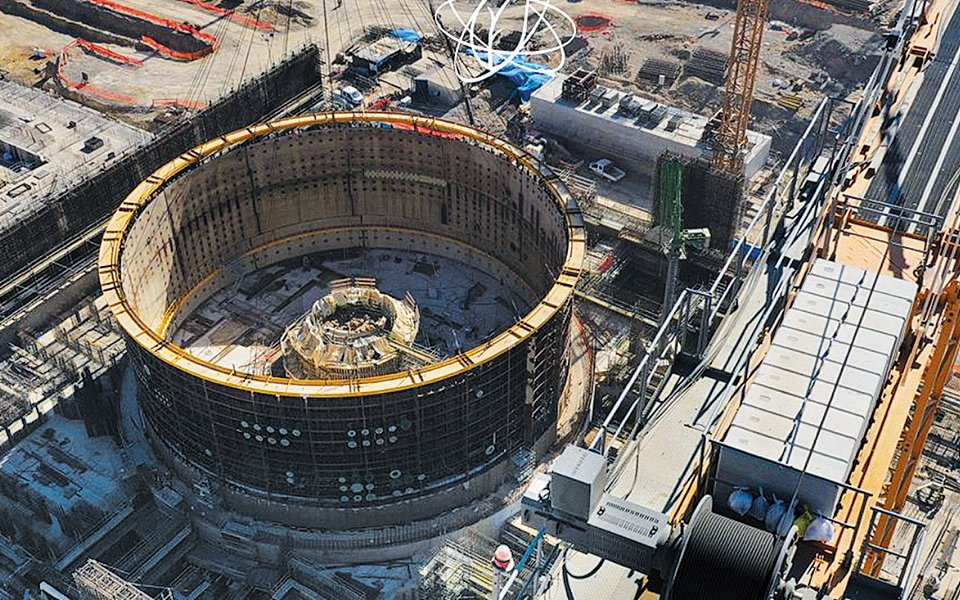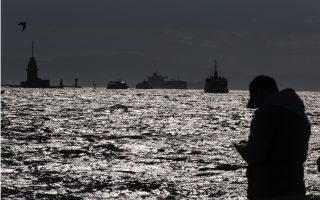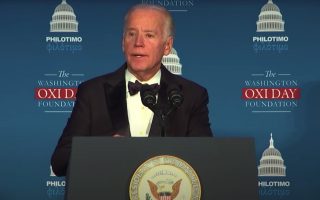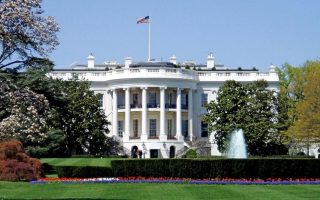Are Turkey’s nuclear power ambitions a threat to regional safety?
Foreign Minister Nikos Dendias expresses fears of a new ‘Chernobyl’ in the Eastern Mediterranean in call with his US counterpart

Approximately three weeks ago, during a 45-minute call with his American counterpart, Greek Foreign Minister Nikos Dendias broached a subject that often flies under the radar of international diplomacy. Dendias brought up the many problematic issues of constructing a nuclear power station in Akkuyu, southern Turkey, with Tony Blinken. These range from the fact that it constitutes a security threat to other states in close proximity to Turkey, to that it is the largest foreign investment by Russia, and Ankara’s unwillingness to share information on the plant. According to the same source, Dendias also highlighted the danger that Akkuyu could become a new “Chernobyl” in the Eastern Mediterranean.
For many years, Athens has attentively observed Turkey’s suspicious endeavor. Reports circulating within the responsible Greek services, which Kathimerini has been made aware of, make it clear that there is another danger regarding Turkey’s nuclear program. Through its creation of nuclear reactors for energy production, Turkey is acquiring both the necessary technological know-how and access to materials that could be used for the development of nuclear arms.
Greek officials, speaking on the condition of anonymity, reported that Turkey is implementing a plan for the construction of three nuclear power plants. At the same time, it is training nuclear engineers and seeking access to dual-purpose resources – fissile material and equipment intended for both civilian and military use.
Out of the three planned nuclear power stations, the one furthest along is that in Akkuyu, on Turkey’s southeastern coast near the city of Mersin. Two other plants are being constructed or planned, in Sinop on the Black Sea and Igneada in Eastern Thrace, also on Black Sea, near the border with Bulgaria.
Turkish President Recep Tayyip Erdogan has publicly voiced his ambition to establish Turkey as a nuclear-weapon state. “Some states possess missiles armed with nuclear warheads and they tell us that we cannot also acquire such weapons. This is something I cannot accept,” he said to members of his Justice and Development Party (AKP) in September 2019.
The deal to construct the Akkuyu plant was signed by the Turkish state and Rosatom, Russia’s state corporation for nuclear energy, in 2010. The cost of the project is approximately 22 billion dollars and the deal stipulates the construction of four 1,200 MW nuclear reactors. Two of these are already under construction and the first is scheduled to come online in 2023, the Turkish Republic’s centenary. However, the power plant is not expected to be fully operational before 2025. It is estimated that the Akkuyu nuclear power station will cover 8%-10% of Turkey’s energy needs and have an expected lifespan of at least 60 years.
Rosatom is funding the project through its Turkey-based subsidiary company Akkuyu Nukleer JSC (Rosatom has held 99% of the company’s shares since 2010). It is the largest private investment in nuclear energy in the last 17 years. As for the Akkuyu site, it must be noted that it has not yet undergone the required stress tests, the evaluation of various technical issues including any dangers posed by the region’s seismic activity.
In 2013, the Turkish government also embarked on negotiations with Mitsubishi Heavy Industry and French company Areva on the construction of a second nuclear power station in the Sinop region. However, there were disagreements, and the Japanese company withdrew from the negotiating table and the future of the project remains uncertain.
In its place, the Turkish state energy company came to an agreement with China to construct a nuclear power station in the area of Igneada in Eastern Thrace, approximately 5 kilometers from the Bulgarian border. In fact, the wider area was designated as a military zone in May. Greek officials familiar with the issue note that this is most likely to facilitate the compulsory purchase order of the land earmarked for the construction of the power station.
There are two uranium deposits in Turkey. The first, and the older of the two mining areas, is located in Temrezli in the Yozgat province of central Turkey. A second deposit was discovered near the city of Sefaatli, in the same province. In 2015, exploration and operation of the site was undertaken by an American company but three years later it pulled out of the area, in part because of the increasing tension in relations between the United States and Turkey. It is believed that Turkey’s diplomatic overtures and maneuvers in uranium-rich African countries, including Niger and Chad, is part of its wider nuclear ambitions.
Similarly, Greek and international analysts suggest that the overtures by Turkish officials to members of Pakistan’s political and military establishment are also part of a wider attempt to establish Turkey as a nuclear power, as Pakistan is one of the nine countries in the world that possess a nuclear arsenal. In fact, according to international reports, a treaty by which Pakistan would provide technological expertise on the construction of nuclear arms, and potentially even long-range missiles, to Turkey was the subject of the meeting between Turkish and Pakistani military officials in Ankara at the end of December.
Russian instructors
The training of Turkish nuclear engineers by the Russian Institute of Nuclear Physics began in 2018. It is estimated that since the program’s commencement, over 140 new engineers have already graduated and a further 110 are still studying. According to a report published on February 17 by the Turkish newspaper Hurriyet, and re-published by the Russian news agency Sputnik, the Turkish nuclear engineers are being trained at Russia’s National Research Nuclear University MEPhI in Moscow and Obninsk.
At the same time, Turkey is also cultivating its relationship with Ukraine, in order to have a fallback option if the Kremlin decides to end its support of Turkey’s nuclear program and transformation. Turkey signed the Treaty on the Non-Proliferation of Nuclear Weapons in 1980 and in 1996 was signatory to the Comprehensive Nuclear-Test-Ban Treaty. In an article published a few months back by the Center for the National Interest, a conservative US think tank, a State Department official is quoted as saying it is vital that Turkey continues to respect the commitments it undertook when it signed the two treaties. Turkey’s nuclear ambitions are also constrained by the country’s NATO membership, as the non-proliferation of nuclear arms is one of the organization’s fundamental tenets. However, Erdogan has never been shy about his intentions and in the United Nations General Assembly of September 2019 stated that “the possession of nuclear energy must either be prohibited to all or allowed to all.” Finally, it should be noted that Turkey is not a party to the International Atomic Energy Agency’s Joint Convention on the Safety of Spent Fuel Management and on the Safety of Radioactive Waste Management.





